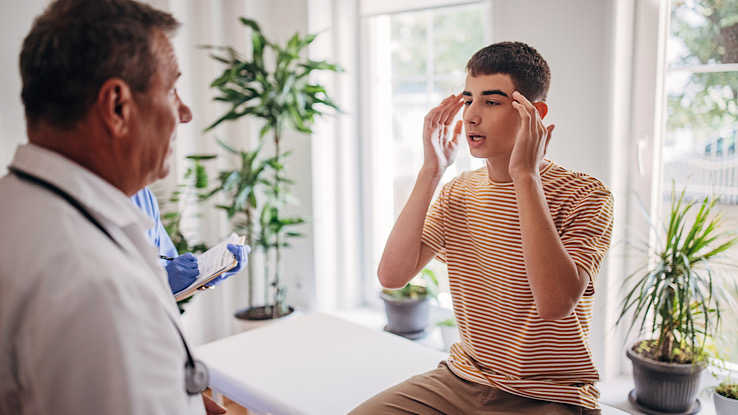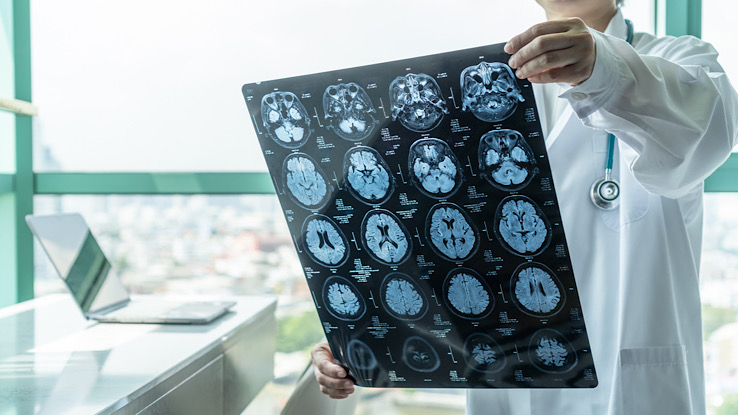Types of Meningitis: Causes, Symptoms, Diagnosis And Treatments

Meningitis is inflammation of the protective membranes that cover the brain and spinal cord. Many different germs, like bacteria, viruses, or fungi, can cause meningitis. While most people recover from this condition, it is important that you go to the doctor as soon as possible because untreated meningitis can be fatal. Treatment for meningitis differs depending on the germ causing it. Learn more about the types of meningitis in this article.
Types of Meningitis
Some people are more likely to get meningitis than others, such as:
- Unvaccinated people who have less protection against germs
- People 20 years old or younger
- People living in a community setting, like recruits in the military, children in boarding schools, or college students in dorms
- Pregnant people, who are at risk of infection from Listeria monocytogenes, an organism found in unpasteurized dairy products and raw meat
- Those with a weak immune system
There are six types of meningitis: viral, bacterial, fungal, parasitic, amebic, and non-infectious. All six types cause similar symptoms.
Viral Meningitis
Viral meningitis is the most common type of meningitis and can be caused by different viruses, including:
- Mumps
- Herpes
- Measles
- Influenza
Bacterial Meningitis
Bacterial meningitis is the second most common form of meningitis. You can get bacterial meningitis if bacteria directly infect the brain and spinal cord or travel to the brain and spinal cord through the bloodstream. An ear infection, skull fracture, or, rarely, surgery can lead to bacterial meningitis.
Many bacteria can cause meningitis, and the most likely type largely depends on your age:
- Streptococcus pneumoniae can cause meningitis in all age groups.
- Group B Streptococcus and E. coli can cause meningitis in newborns.
- Neisseria meningitidis can cause meningitis in teens and young adults.
- Listeria monocytogenes can cause meningitis in pregnant people.
Fungi, parasites, single-celled germs called amebae, and non-infectious conditions can also cause meningitis, though not as often.
Fungal Meningitis
You can get fungal meningitis when you breathe in particles that soil-dwelling fungi release into the air. If you have a weak immune system, you are at increased risk of getting fungal meningitis. People may have weak immune systems if they have medical conditions like poorly controlled HIV or take certain medications like steroids. Fungal meningitis is usually caused by the following:
- Cryptococcus found throughout the world
- Histoplasma found in areas with a lot of bird or bat droppings
- Blastomyces found in soil in the midwestern, south-central, and southeastern US
- Coccidioides found in soil in the southwestern US
Parasitic Meningitis
You can get parasitic meningitis if you eat foods contaminated with parasitic eggs or undercooked foods like raw fish and eels.
Amebic Meningitis
You can get amebic meningitis if water contaminated with an amoeba called Naegleria fowleri goes up your nose while swimming in a lake or river.
Non-infectious meningitis
You can get non-infectious meningitis from cancer, head injury, or brain surgery. These can lead directly to inflammation of the meninges.
Signs and Symptoms
No matter what causes meningitis, the symptoms are the same. Your symptoms may vary depending on your age and immune status.
Adults
The classic symptoms of meningitis in adults are:
- Fever
- Headache
- Stiff neck
Other symptoms of meningitis can include:
- Nausea
- Vomiting
- Confusion or difficulty concentrating
- Seizures
- Sleepiness
- Difficulty walking
- Eye pain in response to light
- No appetite
- Thirst
- Skin rash
Newborns and Young Children
The symptoms of meningitis in newborns and children younger than two often differ from symptoms seen in older children and adults. A baby or young child with meningitis may have:
- High fever
- Constant crying
- Excessive sleepiness
- Irritability
- Difficulty waking from sleep
- Sluggishness
- Poor feeding
- Vomiting
- A bulge in the soft spot on top of the baby’s head
- Stiffness in the body and neck
Diagnosis

Talk to your doctor if you or your child has symptoms of meningitis. Your doctor can diagnose meningitis by:
- Doing a spinal tap: Cerebrospinal fluid (CSF) surrounds your brain and spinal cord. A spinal tap is done when a doctor takes a needle, inserts it into your lower back, and draws a little CSF out of your body and into the needle. Your CSF is then analyzed in a lab to determine what germ is causing your meningitis.
- Getting blood cultures: Your doctor might also use blood cultures to determine what germ is responsible for your meningitis.
- Ordering imaging: Your doctor may have imaging done to see if there is swelling or inflammation around your brain.
Treatments For Different Types of Meningitis
Treatment for meningitis depends on what kind of meningitis you have.
- Viral meningitis: You usually don’t need treatment because most people recover in 7-10 days. If you don’t recover on your own, your doctor may give you antiviral medication.
- Bacterial meningitis: Your doctor will treat you with antibiotics. Bacterial meningitis can result in permanent brain damage or death if left untreated, so getting treatment as early as possible is important.
- Fungal meningitis: Fungal meningitis is treated with high-dose antifungal medication. If you have a weak immune system, you will probably have to be on antifungal medication longer than someone with a strong immune system.
- Parasitic meningitis: Your doctor will treat your underlying parasitic infection and give you pain medication for any headaches you may have.
- Amebic meningitis: There is no known effective treatment for amebic meningitis, and, unfortunately, this disease is almost always fatal.
- Non-infectious meningitis: Your doctor will treat your underlying non-infectious condition, such as cancer, head injury, or brain surgery.
Next Steps
Here are a few steps you can take to prevent meningitis:
- Wash your hands frequently and thoroughly to prevent the spread of germs.
- Don’t share items like drinks, eating utensils, or lip balm with others.
- Maintain your health by exercising regularly, getting enough sleep, and eating plenty of fresh fruits, vegetables, and whole grains.
- Cover your mouth when you cough or sneeze.
- If you’re pregnant, avoid unpasteurized dairy products and undercooked meat.
- Get vaccines against certain forms of bacterial meningitis, like the pneumococcal conjugate vaccine (PCV13)
If you’ve been in close contact with someone who has bacterial meningitis, your doctor can give you antibiotics to prevent you from getting meningitis as well.
If you feel like you or your child might have meningitis, set up an appointment with your doctor as soon as possible. Before your appointment, drink plenty of fluids and stay home from work or school. When you see your doctor, they will evaluate you and let you know what treatment is best.
Resource Links:
- “Meningitis” via CDC
- “Meningitis” via Mayo Clinic
- “Meningococcal Disease” via CDC





